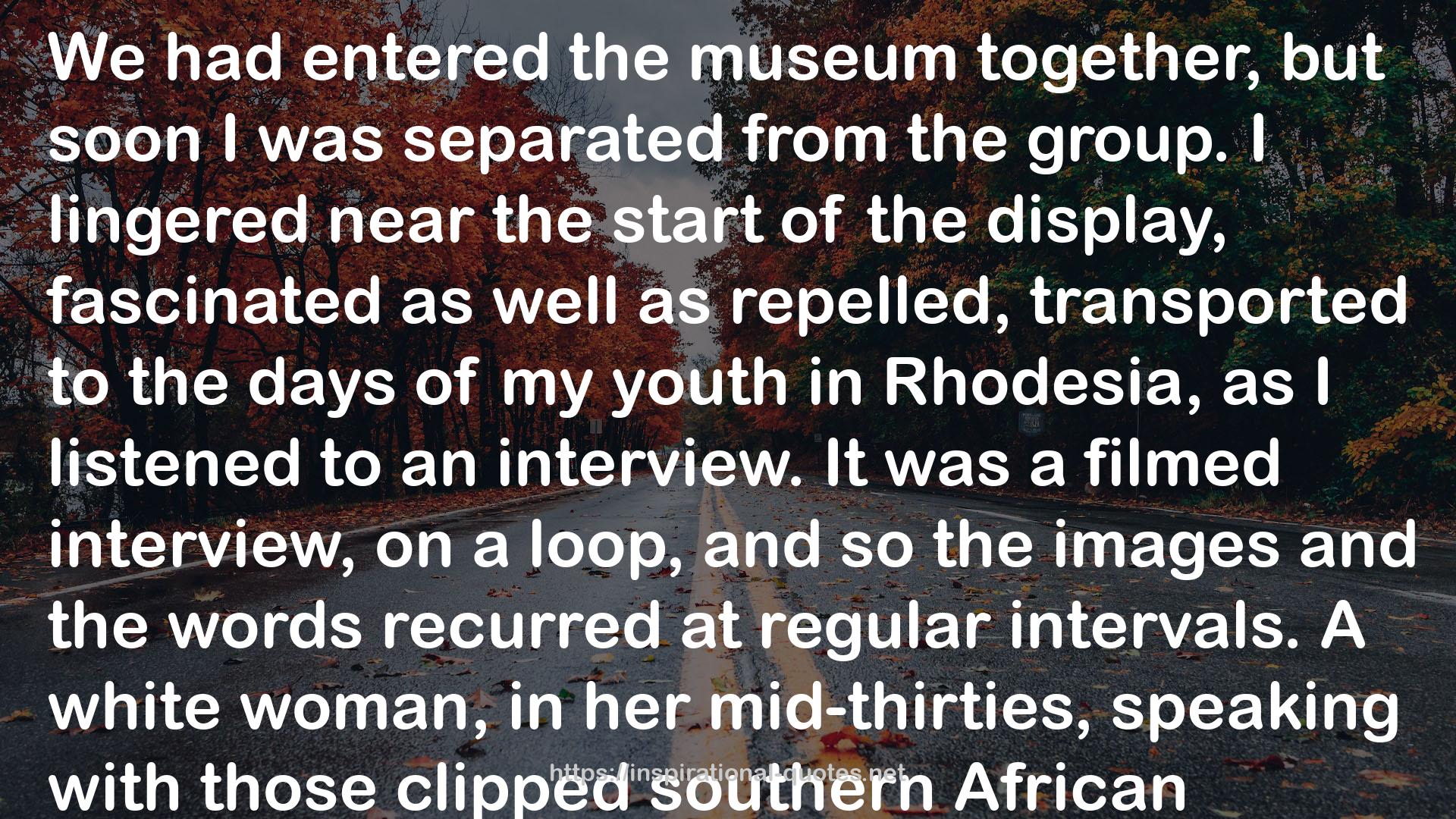" We had entered the museum together, but soon I was separated from the group. I lingered near the start of the display, fascinated as well as repelled, transported to the days of my youth in Rhodesia, as I listened to an interview. It was a filmed interview, on a loop, and so the images and the words recurred at regular intervals. A white woman, in her mid-thirties, speaking with those clipped southern African vowels, was setting out her concerns about majority rule. I cannot remember any more detail. But in familiar code-word language, in a reasonable tone, quite matter of fact, as if spelling out the obvious, she justified an evil system. Over, and over, and over again. It became the voice I had heard throughout my youth, and beyond. I watched and listened, mesmerised by this voice from the fifties. Then it hit me. I was overwhelmed by a great wash of sadness for generations lost during the scourge of apartheid. Not just for the millions who died, directly or indirectly, victims of war or preventable disease; but for the might-have-beens, the should-have-beens, the could-have-beens: the unread writers, the unheard musicians, the uncelebrated athletes, the talented and the ordinary – lost to Africa, lost to the world, sacrificed to prejudice. Suddenly and unexpectedly, I was weeping. Or to put it bluntly, I sobbed. There was none of the dignity that can be associated with the word ‘weep’. These were not discreet tears, not dignified drops, rolling down my cheeks. My shoulders shook and my nose ran copiously. "
― , Soweto Inside Out: Stories About Africa's Famous Township
